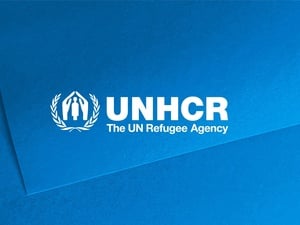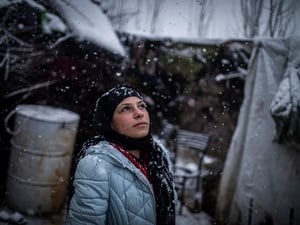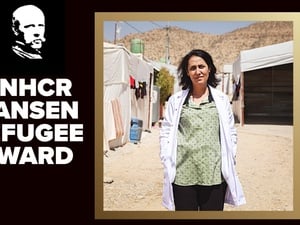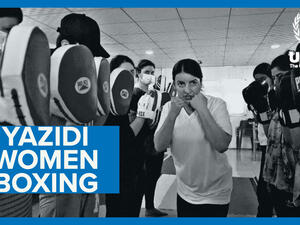Iraq region: no substantial movements reported
Iraq region: no substantial movements reported
UNHCR reports no substantial movements of refugees across international borders in the Iraq region. We continue to monitor frontier areas in countries bordering on Iraq.
In Iran, UNHCR teams, accompanied by Iranian authorities, this week visited several areas along the Iranian border to look into reports of groups of displaced Iraqis, mainly from northern Iraq, who have fled to Iraqi areas near Iran. On Wednesday, a team went to the Iranian side of the border near the Iraqi town of Penjwin, where the ICRC had reported that 22,000 Iraqi Kurds who had evacuated from Sulaymaniyah and Kirkuk had gathered in mosques, schools and houses of friends and relatives. This was the largest group reported to have moved to the border close to Iran since the war broke out in Iraq. We were told that some of these Iraqis had gone back to Sulaymaniyah after hearing that the situation there had improved. The closest we got to Penjwin, a snow-covered mountainous area, was the Bashmaq border crossing in Iran's Kurdistan province, which is seven to eight kilometres away. At Bashmaq village, just 200 metres away on the Iraqi side, we were told that 30 to 40 people had gone there from Sulaymaniyah but had returned because there was no food in the village and the situation had improved in Sulaymaniyah.
We have checked out several other reports of smaller groups of Iraqis who had gone close to Iran, but Iranian authorities tell us that so far there have been no refugee arrivals in Iran and there have been no attempts by displaced Iraqis to cross the border into Iran. The Iran-Iraq frontier was heavily mined during the 1980-88 war and is still a military zone where travel by civilians is restricted. The Iranians have maintained that their borders are sealed but that Iraqis whose lives are in danger would be allowed to enter the country. Meanwhile, our preparations to receive Iraqi refugees continue. Construction of basic infrastructure, such as water and sanitation facilities, continues in four campsites in Khuzestan, Kermanshah and Ilam provinces in western Iran. These four, with a total capacity for 60,000 people, are among 10 sites that have been prepared to receive refugees. The other sites will be opened if needed. We are also continuing to stockpile relief items - tents, blankets, jerry cans, kitchen sets - in our warehouses in the towns of Ahwaz and Kermanshah in western Iran.
In Syria, UNHCR will deploy 30 additional emergency staff from Sunday to ensure that the border areas are properly monitored. We will have mobile teams based throughout eastern Syria.
Work is under way to ensure that the long-time Al Hawl camp be ready to accommodate refugees. We are also looking at another possible campsite at Sabahar, north of the Al Tanf border crossing on the main road linking Damascus with Baghdad. UNHCR has an existing stockpile of relief items for 10,000 people in Syria, with additional items available at our regional stockpiles at Iskenderun, Turkey, and Aqaba, Jordan.







